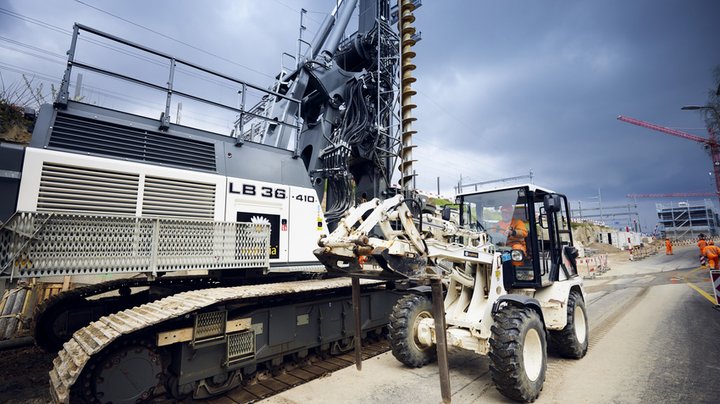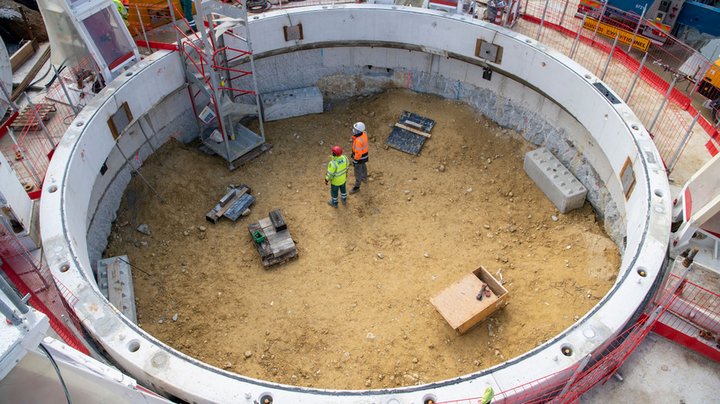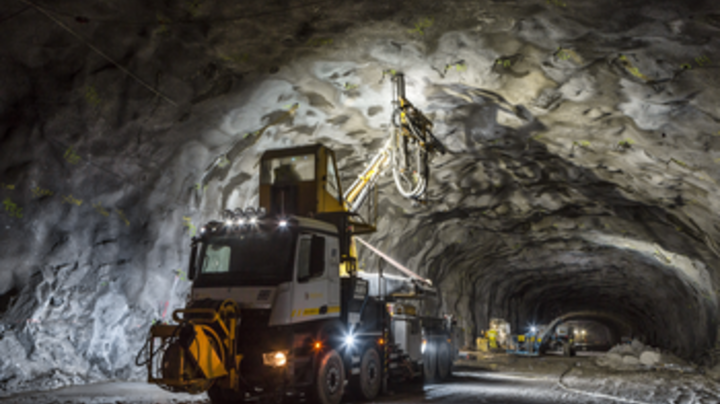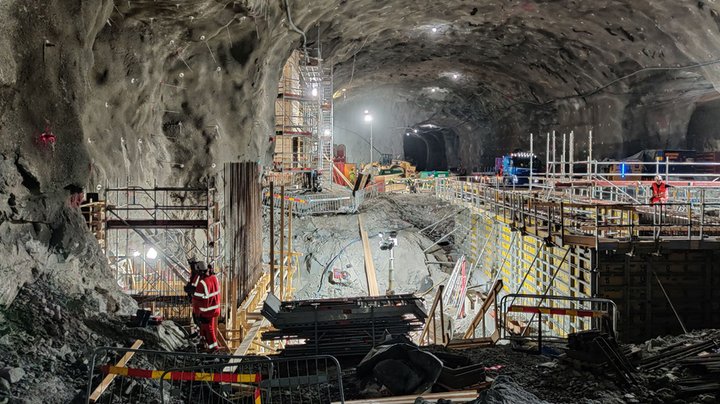Safety is a leadership issue
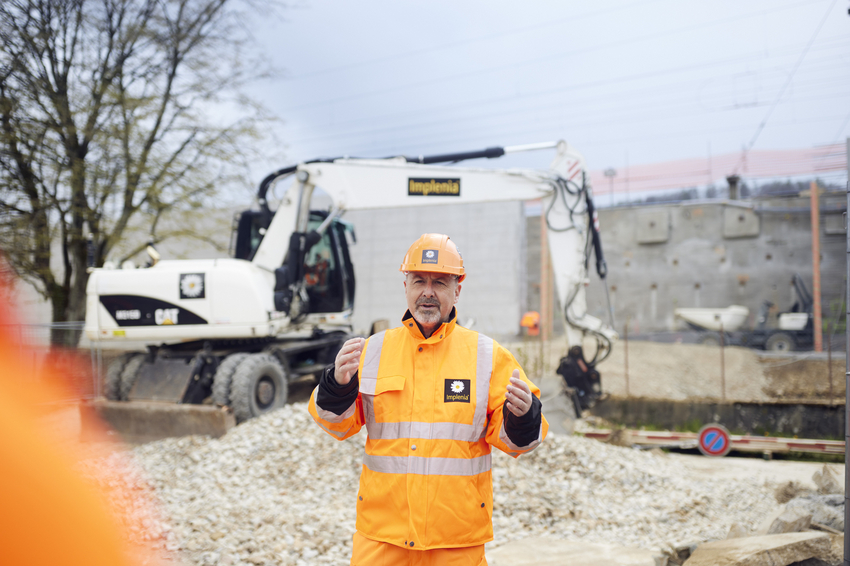
Record low accidents figures for years: how do you do it?
Walter Wolf: Safety at work is our top priority, and has been for many years, with top management setting the pace and driving the safety agenda hard. Our safety officer Jörg Häller keeps very close tabs on things. We don’t compromise on safety; it is non-negotiable. Safety is more important than profit, more important than punctuality.
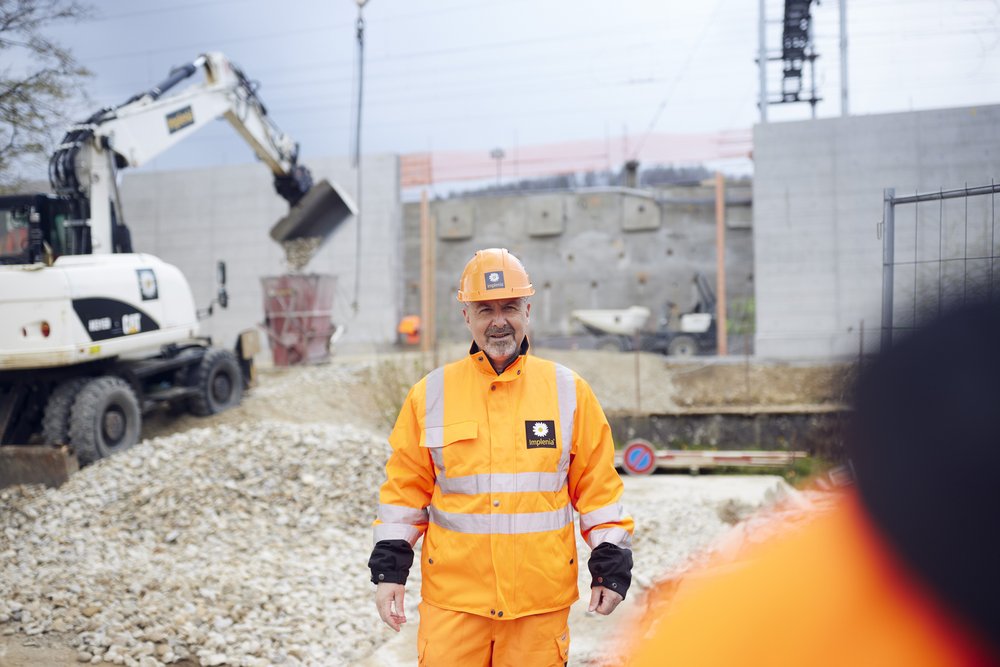
“Safety comes first for us.”
Walter Wolf, Head Northwest Switzerland/Bern Market and Construction Unit Northwest Switzerland
How does the message get through to the front line?
W.W.: It isn’t that simple. We need to make sure that people not only hear us, but also understand. And adjust their behaviour accordingly. Take our Safety Rule No. 1 for example: When in doubt, I say STOP! Lots of people find this hard and worry about getting their colleagues into trouble with their managers. Or if something breaks or there’s a small bit of damage that other people probably won’t notice, they might think: “Do I really have to say something and explain why something so stupid happened?”
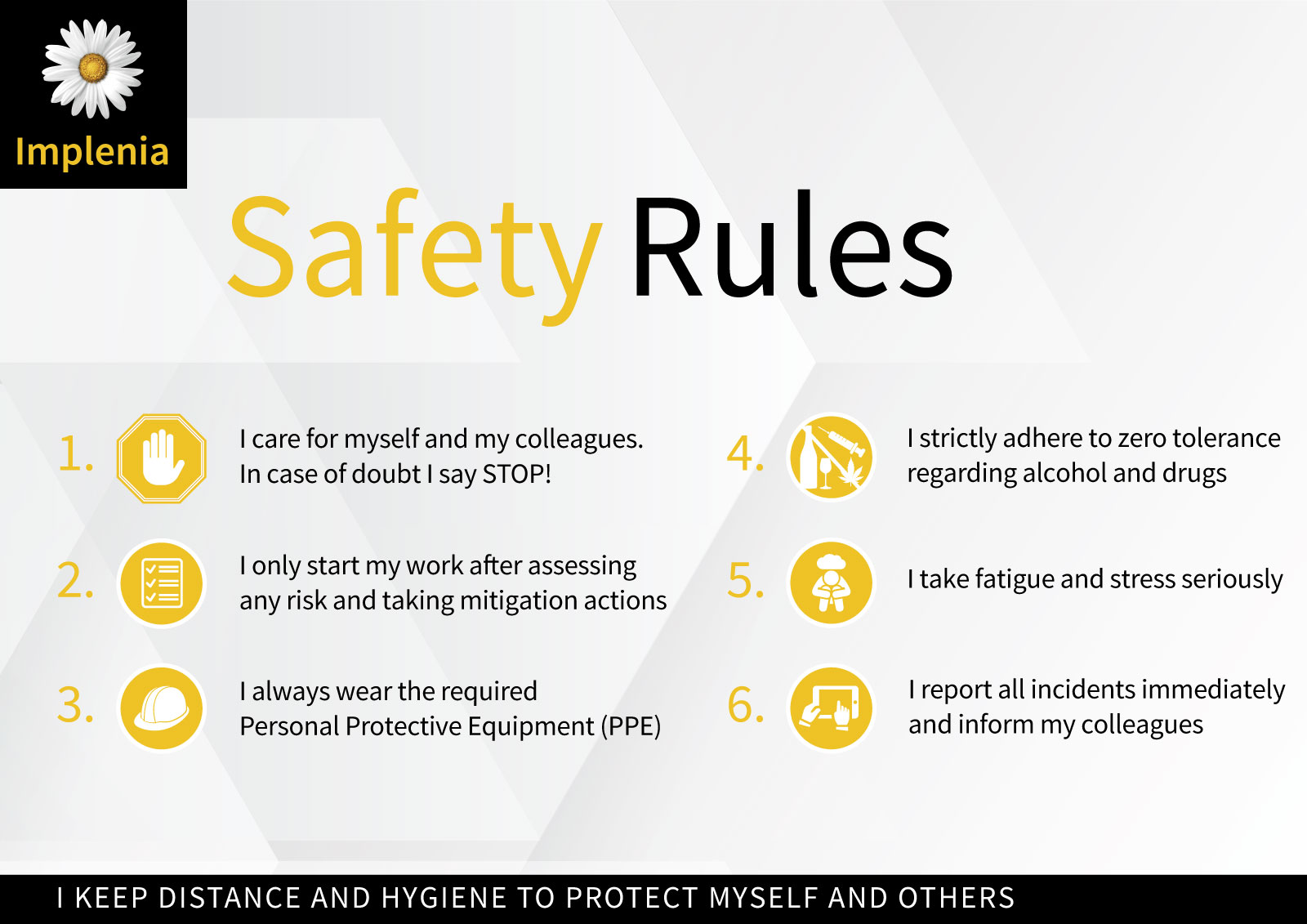
But that’s exactly the point: if something happens, it could happen again. Which is why we have Rule 6: I report every incident immediately. Every one, even the smallest. Again and again people say to me: “That’s completely excessive!" But every accident is an exceptional event and we don’t want to just wait until something major happens. The worst thing I can imagine is having to go to an employee’s house and explain to the family that their son or daughter, husband or mother is not going to be coming home again.
Is there any resistance to Rule 6?
W.W.: We have had cases where someone who reported an accident or rule violation was made to feel uncomfortable by colleagues. Managers have to keep a close eye on things like this, intervene and sometimes even move people to other sites. It is not acceptable that someone is punished for sticking to the rules.
What else do managers have to look out for?
W.W.: They have to set an uncompromising example on safety. It’s easy to overlook things, especially when time is tight. Everyone knows the situation: your running late for the next appointment. It’s happened to me as well: I’m sitting in the car and take a last look back to see a worker standing on the roof of a truck changing a light bulb on the ceiling. I admit, there is a great temptation to ignore it and just drive off so I’m not late for my meeting.
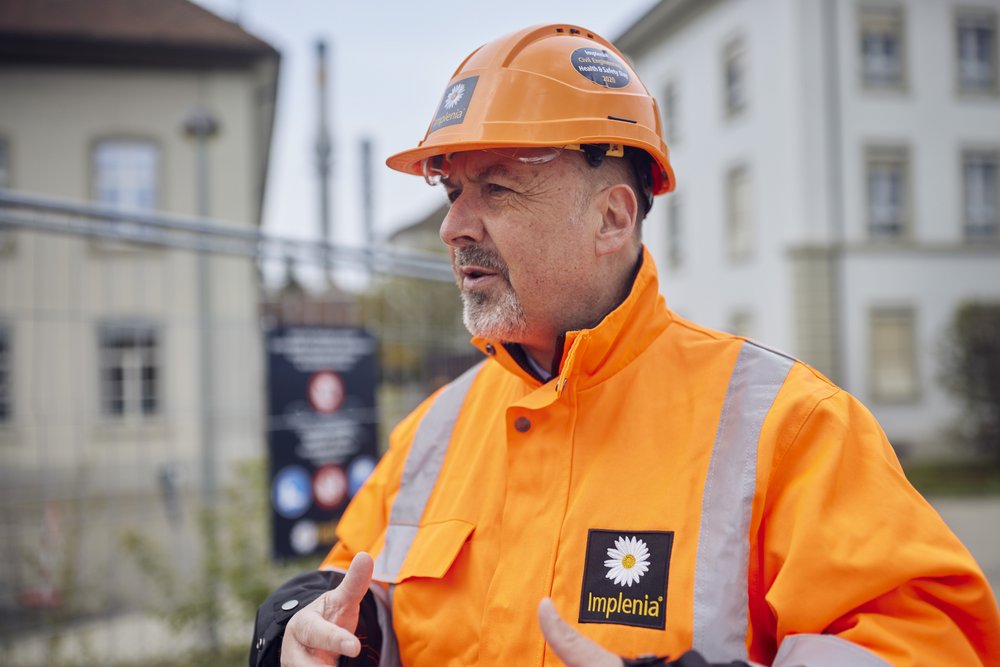
“The temptation to ignore some things is great.”
Walter Wolf
But that is precisely what is not acceptable. So I get out again and I talk to the man. And he says it would be crazy to commission a cherrypicker to do such a small job. It would cost too much! Maybe. But if something happens, the price would be much, much higher. I can’t repeat this often enough. Safety is the top priority. Costs and deadlines come second. Always. And if you don’t accept this, you can leave.
Has that happened? Has someone been dismissed because they haven’t obeyed the safety rules?
W.W.: Yes. Years ago, some foremen tried to rebel by refusing to wear helmets. No deal! You have to be tough with these things. Helmet on, or find a new job. The helmet issue hasn’t been discussed since. I have first warned and then had to sack otherwise very good workers for precisely this reason. Irresponsible behaviour is simply not tolerated at Implenia and is a grounds for sacking. Everyone knows the score now. At every stage managers must make sure there is no compromise in adhering to safety rules, even if this is difficult or makes them unpopular. You have to set an example with safety, otherwise we have no chance.
How do you make sure that everyone acts like this?
W.W.: We devote a lot of bandwidth to health and safety. In our region we have the best safety officers. Jörg Haller is present on our construction sites, corrects things and is uncompromising in ensuring that rules are actually followed. We have annual training, but we also have “dangerous situations” on the agenda of every monthly construction manager meeting, and everyone takes turns in holding a presentation on a safety topic. If there has been an accident, it is discussed: the sequence of events, the causes and possible solutions to the problem. It’s motivating: If we’re always talking about the same people suffering from accidents, everyone ends up asking why.
Where is the greatest resistance and where are the biggest challenges? Uncomfortable helmets?
W.W.: (Laughs) No, I don’t think anyone is arguing about compulsory helmets any more. Machinery is always a difficult area: Implenia has to make sure that everyone is trained properly to use any of the equipment they might need. This means additional coordination work, but it has to be done. Then we have the issue of using seatbelts on diggers, or consistently making sure doors are closed.
Where do most of the dangers lurk?
W.W.: Barriers, signage, work rooms, but also cleaning pavers. Often the solutions are trickier than you’d think. You can’t leave workers on their own to find practical and safe ways of working.
You say that cost and deadline pressure can sometimes tempt people to circumvent safety measures. How do we deal with this dilemma?
W.W.: We have to do what’s right. Some time ago I had an argument with a client. We were working in a road tunnel and had to block off a lane after rush hour was over. I wanted to put up a crash barrier to make things safe enough and stop any car that failed to change lane in time from hitting our people. The manager wasn’t happy because there wasn’t a barrier available there and then. They wanted us to keep working. But I said no, STOP! He even threatened to terminate the work contract. So I contacted his superiors and sorted things out. But I would have cancelled the job if I’d had to. And I know that Implenia will support me if I make a decision like that.
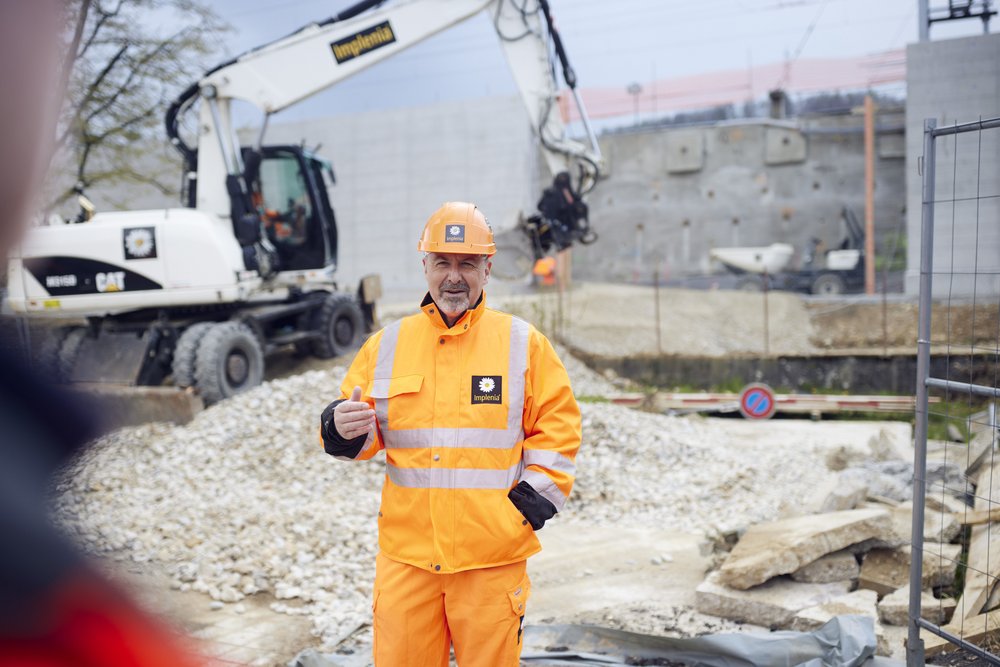
“People trust us with their children, partners and parents!”
Walter Wolf
Ultimately I have to be able to look at myself in the mirror each evening. I can only do this if I put people and their health and safety first, even if it sometimes causes difficulties. I’ll keep saying it: just think of our own families. People trust us with their children, partners, parents, and expect them to come home healthy each evening. We need to act accordingly!

